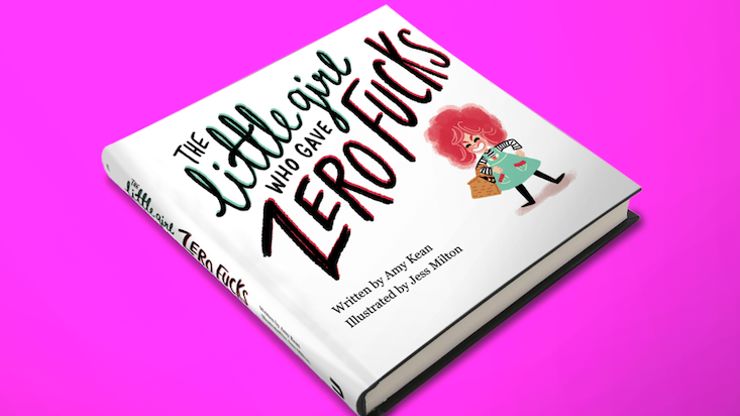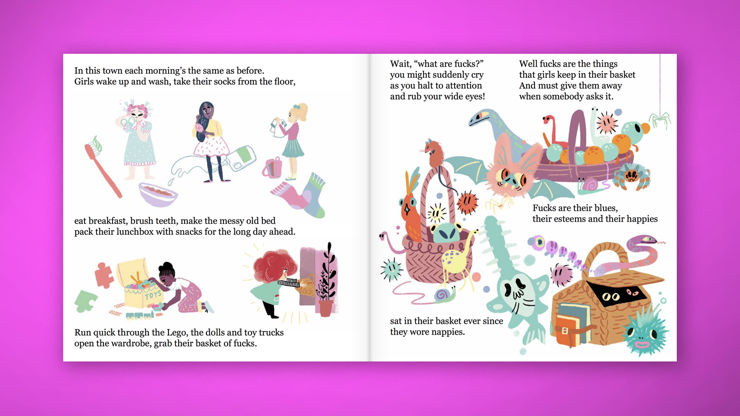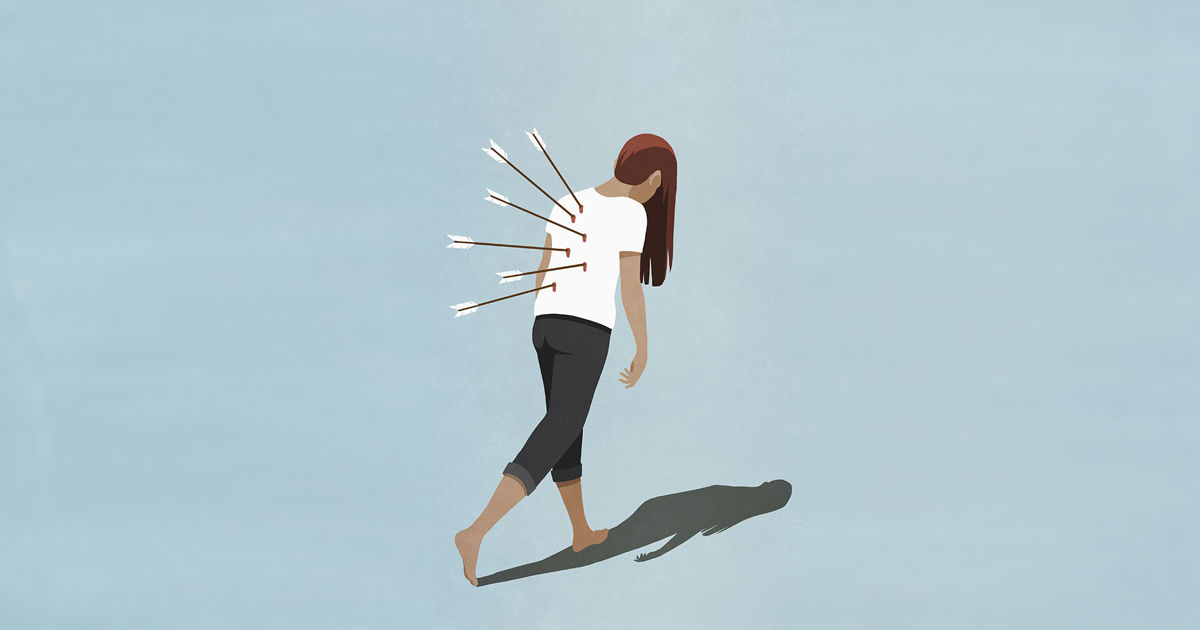Women vs. women: Is this the real reason we’ll never be equal?
From domineering nuns to tyrannical teachers, Amy Kean has been on the sharp end of other women's ire since her school days. But why are some women so quick to criticise others of their gender, and can prejudice, Queen Bee syndrome and the need for male approval be put aside so that gender equality can be achieved?
I’ve experienced my fair share of nasty nuns. It’s the first question I’m asked when I tell people I went to an all-girls convent school: “What were the nuns like? Were they psychos?!”
“Oh, they’re evil,” I normally reply, playing to the crowd. “Just like in the films.”
My nun teachers would regularly tell me I was going to hell because my skirt was an inch above regulation length, or if I ever said the word “bollocks”.
Sister Act and The Sound of Music aside, nuns have been fantastic horror fodder for decades, screaming their way through haunted houses and asylums; angry, frustrated, childless women in desperate need of cock. Doing dirty stuff with crucifixes.
At school, I never saw any of that. And I haven’t been haunted by one… YET! But my nun teachers would regularly tell me I was going to hell because my skirt was an inch above regulation length, or if I ever said the word “bollocks”. I witnessed a lot of humiliation, occasional leg-smacking (right on the upper thigh, where it hurts the most) and too many detentions to mention for behaviours like 'talking in the corridor'.
School is supposed to be a safe space.
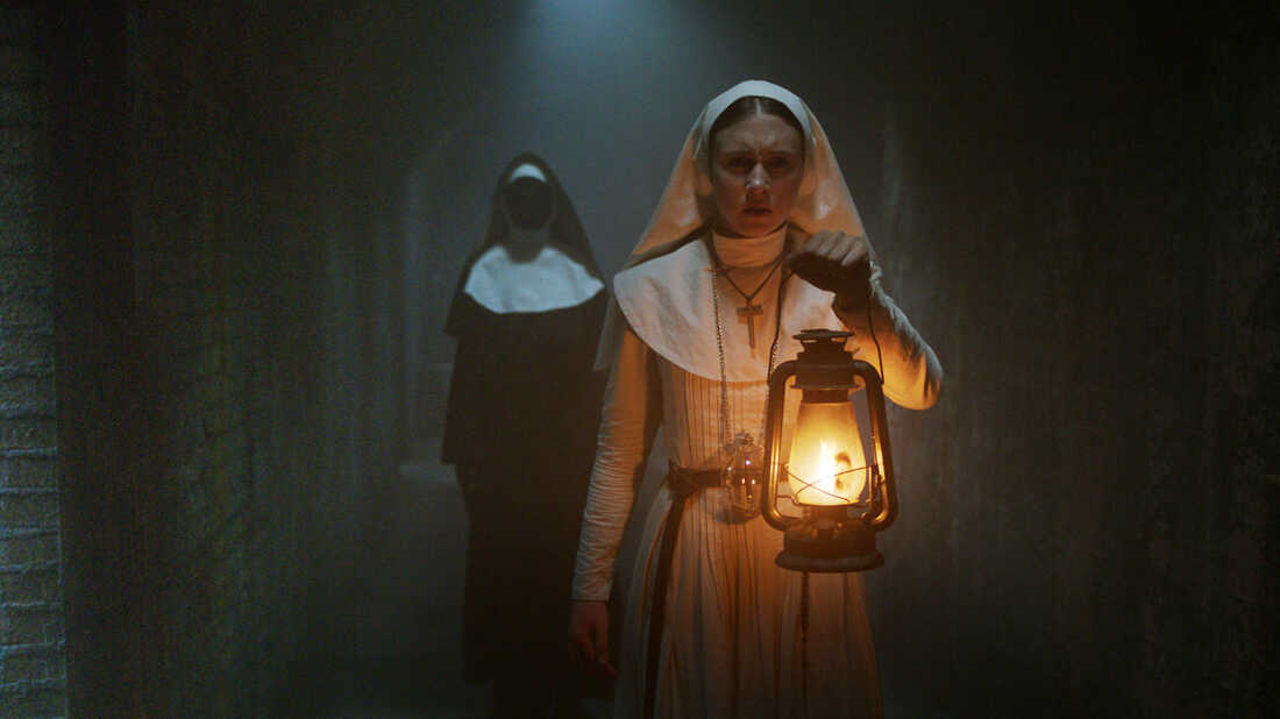
Above: A scene from The Nun: "Nuns have been fantastic horror fodder for decades," says Kean.
Truth in the trope?
A demonic sister with red eyes, piercing scream and a rotating head I can handle but, at the age of 15, it baffled me that another woman would want to regulate mine and my girlfriends’ basic human behaviour so much that it made us less. It’s plain to see that nuns in fiction are victims of a twisted patriarchal narrative - priests have done a lot worse, after all - but is there an element of truth to the trope?
I get told off by women a lot, you know. In fact, I’d describe it as a regular occurrence.
Turns out it wasn’t just nuns. When I was 17 (at a non-religious, mixed college) my A-Level sociology teacher, a feminist called Joan, accused me of 'attention seeking' in class. I’d been answering too many questions. Putting my hand up too much. I was moved to a table on my own and told not to disrupt lessons, while my male classmates were allowed LOLs and quips and proper bants.
There it was again! The female regulation of other female behaviour.
I get told off by women a lot, you know. In fact, I’d describe it as a regular occurrence. At ad agencies it was mostly for being too weird, swearing too much, showing too much cleavage, talking in the corridor, not flirting enough with male clients, not being enough of a badass, being too much of a badass, being too confident, not being confident enough, having messy hair, caring too much about my appearance and putting on weight.
Women really do love to regulate other women’s behaviour, in a way that men don’t.
Recently, a woman called me “abrasive” (without being able to provide examples of abrasiveness). Women really do love to regulate other women’s behaviour, in a way that men don’t (this is a big theme of my best-selling book, The Little Girl Who Gave Zero Fucks).
Above: Kean's book, The Little Girl Who Gave Zero Fucks, covers women's regulation of other women's behaviour.
The prejudice problem
According to the UN’s 2020 Gender Norms study, 90% of people hold at least one prejudice towards women. Nice. Half the people surveyed (across 75 countries) said they thought men made better political leaders than women, while 40% felt men would be better business executives. Almost 30% said they thought it was acceptable for a man to beat his partner.
According to the UN’s 2020 Gender Norms study, 90% of people hold at least one prejudice towards women.
Across the globe, some 91% of men hold a bias towards women. In the main, they’re likely to hold between two and four biases, and I’m not shocked by this in the slightest. But here’s the particularly shitty thing: 86% of women worldwide hold a prejudice towards women, too. Yet, we still find this harsh reality extremely difficult to discuss.
There’s been a counter-productive vibe of women vs women throughout history. Some of it manufactured (Katy Perry vs Taylor Swift) and some of it very real (like the women who participated in medieval witch-hunts). There’s entire films about it! Heathers. Clueless. Mean Girls. DEATH BECOMES HER!
The anti-suffrage movement saw thousands of females in the US and UK actively campaign against the right to vote. 47% of white women voted for Donald Trump (which, even though the original exit poll stat of 53% turned out to be incorrect, is still shocking), and female celebrities get trolled by other women relentlessly.
Women compete for male approval because we’ve been convinced that male approval is the key to a long and happy life.
This us against us mentality probably boils down to one main thing: social survival. Women trying to survive in a man’s world. Men will always do more damage to women than women can, but arguably the best way to convince something not to kill you is to get it on-side. Women compete for male approval because we’ve been convinced that male approval is the key to a long and happy life.
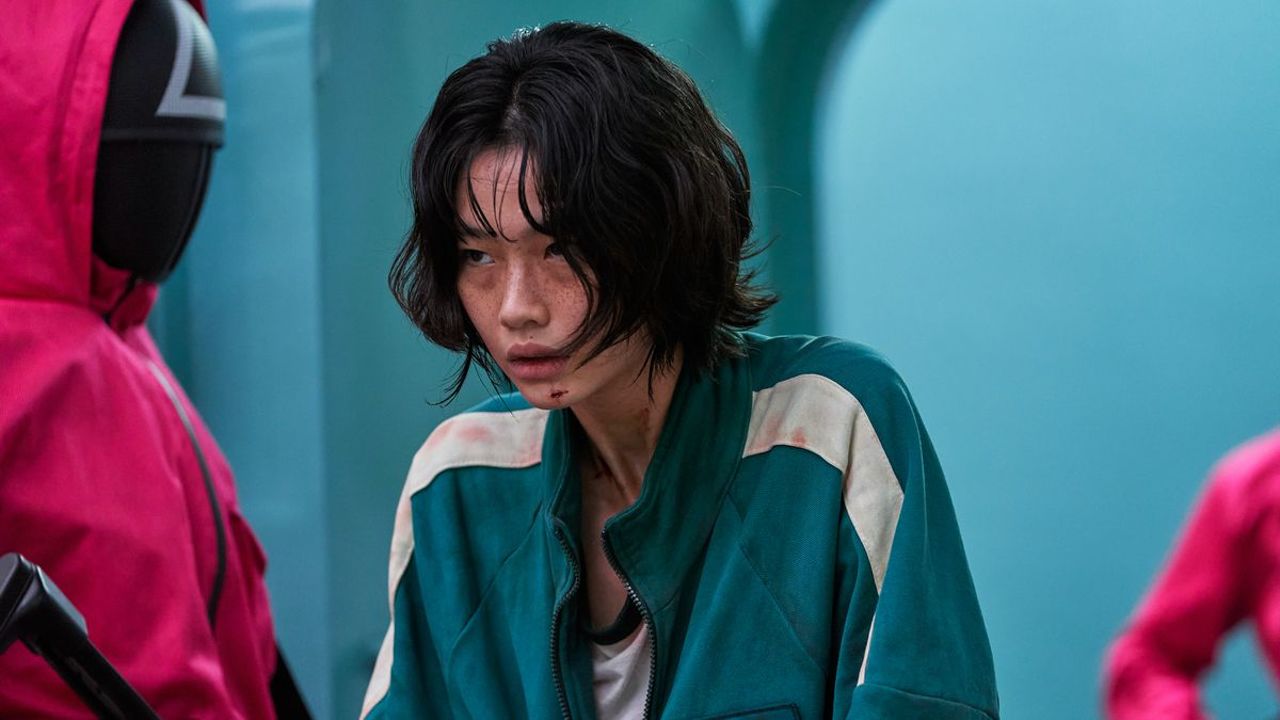
Above: "The race for ‘survival’ on social media is a little more Squid Game."
But, what kind of feminism?
We see the race for survival everywhere, like at work. The concept of Queen Bee syndrome was coined in 1973 to describe a belief held by senior women that their professional spotlight is small. But whilst the behaviour of a Queen Bee (bullying and belittling) is bad, the belief isn’t an irrational one when women have been begging for boardroom seats for years. The men in charge have done a lovely job of inspiring women to battle each other for attention and kudos. The race for ‘survival’ on social media is a little more Squid Game, however (caveat: I haven’t seen Squid Game, but I know that it’s dark and people die).
It’s a nice ad, and it made me cry. Although, according to the women telling me off in my mentions, I’d committed a crime akin to slaughtering the entire population of a small suburban town.
A couple of years ago I was introduced to the intensity of online radicalisation when I shared an ad by Starbucks [below] for the charity Mermaids (which supports transgender, non-binary and gender-diverse children) on Twitter. The ad focused on the simple process of having your chosen name written on a cup. It’s a nice ad, and it made me cry. Although, according to the women telling me off in my mentions, I’d committed a crime akin to slaughtering the entire population of a small suburban town.
Mostly I’ve watched these ‘debates’ from afar, disturbed. But a couple of weeks ago, the conversation around an event I was promoting on social media about feminism at work got derailed by anti-trans feminists (the event blurb featured zero mentions of the LGBTQ+ community, by the way). What they originally pitched as innocent questions surrounding “what kind of feminism” the event focused on (“is it the kind that centres women?”) quickly turned into harassment. The speed of the descent stunned me. The utter state of it meant we switched the event to invite-only.
When we’re this great at hurting each other, who even needs men?
It was gender-based bullying the likes of which I’d never seen from another woman before, even at an all-girls’ convent school. Even at ad agencies! Apparently this anti-trans discourse is about safe spaces for women. It’s a movement masquerading as survival. But, for a bunch of people who claim to care so much about the wellbeing of their 'sisters', they seem to be OK with pummelling any woman who disagrees with them. When we’re this great at hurting each other, who even needs men?
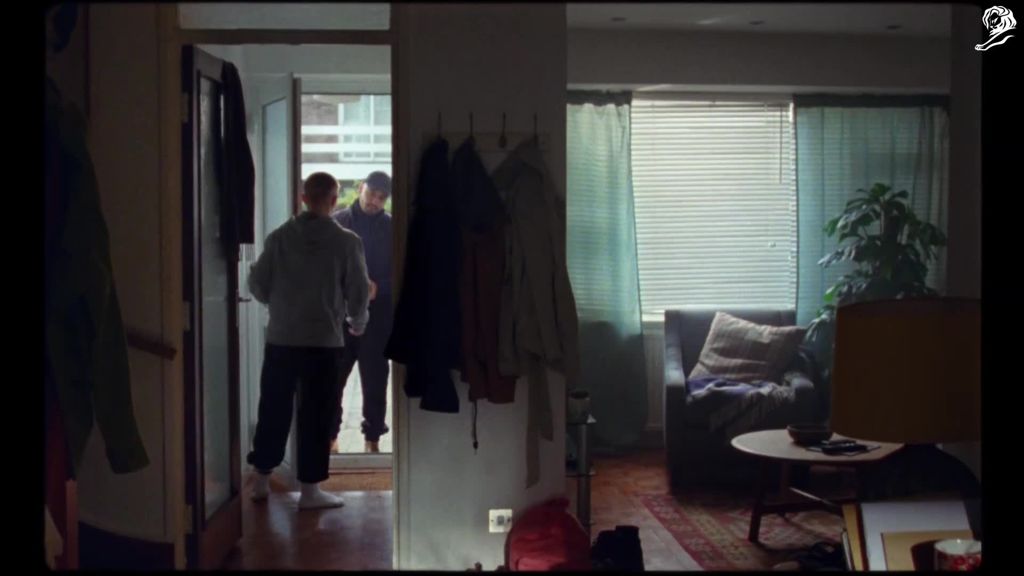
Credits
powered by
Above: Starbucks' commercial which is supportive of transgender, non-binary and gender-diverse children.
Every day Twitter trends with this kind of hatred, as feminism as we know it falls apart at the seams. Maybe that’s not a bad thing. We likely need a new kind, a more inclusive kind. It reeks of privilege and ignorance to believe you have any right to dictate what another human being does to their body. As women we should know that: we’ve been fighting abortion law for as long as I can remember. I’ve studied feminism for 20 years: governing other people’s bodies isn’t what we stand for.
It reeks of privilege and ignorance to believe you have any right to dictate what another human being does to their body.
But this exclusionism has been bubbling under the surface for a while, and when I say “a while”, I mean centuries. Koa Beck, the author of White Feminism, says that the problem with some significant pockets of feminism is that they’re not really focused on helping all women. She says that she sees "white feminism as an ideology and a very specific approach and strategy toward achieving gender equality that focuses more on individual accumulation, capital and individuality — accruing power without any redistribution or reconsideration of it. And that’s why white feminism overlaps with white supremacy and classism and transphobia, because there’s no analysis of that power and it’s very singular in its execution and goals.” This isn't feminism, it's a selfish quest for priority treatment. End of.
Personally, I like Lynda Carter’s take:
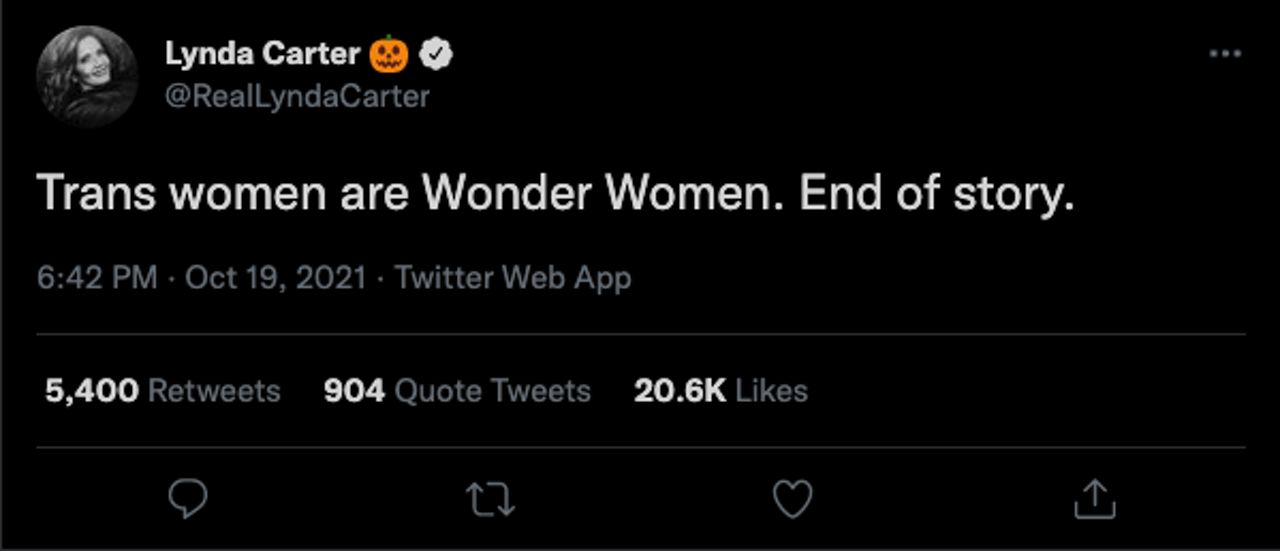
Above: Wonder Woman actress Lynda Carter's tweet from earlier this month.
A special place in hell
Can’t we just leave it here, instead of letting the unnecessary, uncomfortable women vs women war rage on, while the bad men watch, thinking ‘shit, they’re making this easier than ever!’? According to the UN Gender Norms survey, not one country in the world has achieved gender equality yet. Not one.
I wish all of us had the self-awareness to realise the damage we could do to our esteem en masse, and especially to the esteem of those more vulnerable than us.
When I call nuns evil, I don’t really mean it. There are numerous studies showing how easy it is to pathologise behaviours in women, so maybe I’m part of the problem. But they did hurt me. I don’t think they were psychos. But I wish they’d had the self-awareness to see what they were doing to a generation of young girls by making them fear non-conformity. I wish they’d questioned their place in the ultimate power structures of education and organised religion. I wish all of us had the self-awareness to realise the damage we could do to our esteem en masse, and especially to the esteem of those more vulnerable than us.
“There’s a special place in hell for women who don’t support other women,” goes the cliche; a quote attributed to Madeleine Albright. I don’t think that’s it. I don’t need to unquestioningly support every woman in the world: Christ, where would I find the time?! Rather, I think it’s reserved for women who actively fight women, and regulate women for no other reason than they are women; because they know they are easier to beat. Because they have an idea in their head of what the perfect woman is.
Frightened women have a history of punching down to those weaker than them, whether at work or in witch-hunts.
Frightened women have a history of punching down to those weaker than them, whether at work or in witch-hunts, because it makes them feel powerful in a messed-up, patriarchal society. And this is a huge, awkward and often unspoken barrier to true progress. We’ll never be equal if we keep fighting each other, and that’s a cold, hard, indisputable fact.
So, yeah. I think there’s a special place in hell… and it’s probably filled with transphobic nuns.
)

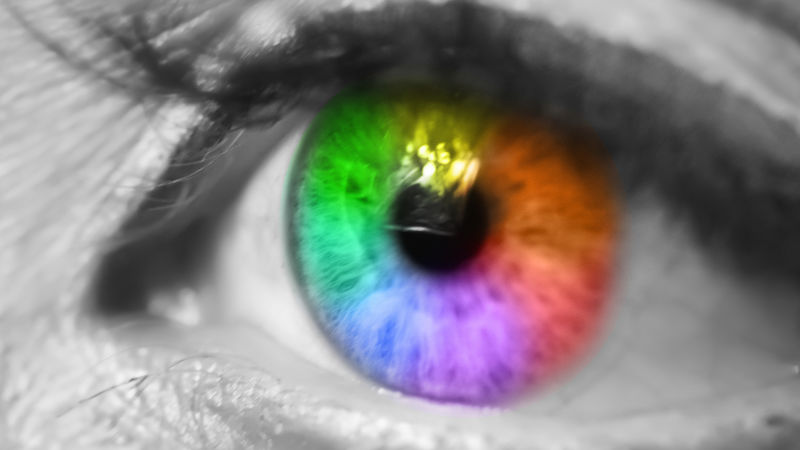


 + membership
+ membership

